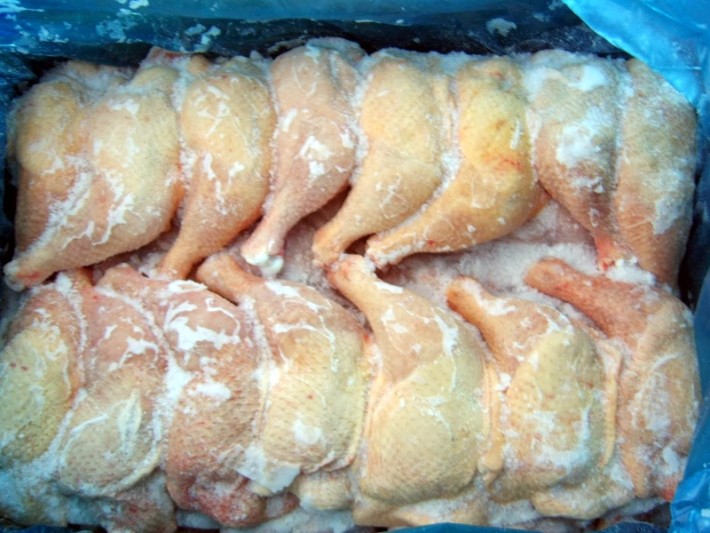The frozen food business in Nigeria is a very lucrative one to venture into, whether you live in Lagos, Abuja, Port Harcourt, Asaba, Onitsha, or any other part of the country, because it is one of the fastest moving businesses in Nigeria. The demand for frozen food tends to be on the high side, especially in urban areas.
Frozen foods refer to food items that are stored at a freezing temperature to preserve them from spoilage. This food includes fish, chicken, turkey, beef, prawns, meat (pork), etc. Frozen foods are known to be more convenient, safer to use, more hygienic, and safe from bacteria and other food pathogens.
Many people like frozen chicken since they are not going to be involved in the stress of slaughtering the chicken, boiling water, peeling off the feathers, and dividing the chicken into parts.
STEPS ON HOW TO PROCESS A CHICKEN
Some of the processes involved in processing a chicken include the following:
Stunning
Slaughter
Cleaning and chilling: removing the innards and any remaining unwanted parts
Inspection and Testing: There are multiple critical control points for product inspection within a poultry processing facility.
Packaging and Shipping: Packaging of finished chicken products and transporting them to their next destination
Secondary Processing: This includes everything from cutting up the chicken to marinating and cooking it.
Economic Prospects Of Broilers
FACTORS REQUIRED FOR FROZEN CHICKEN PROCESSING
Time: This is the period required for the product to change temperature safely.
Space: This is a room in which the product can be stored while it’s tempering.
Energy: This is required to control temperatures within the room.
Monitoring: This is to adjust the climate in the room to control the temperature.
EQUIPMENTS NEEDED TO START A FROZEN FOOD BUSINESS IN NIGERIA.
Some of the equipment needed to start a frozen food business includes
Deep freezer
Generator
Fan
Scale
Table
Cleaver or cutlass
HEALTH BENEFITS OF A FROZEN CHICKEN
Chicken is a very good source of protein, like fish and other sea foods. Protein builds our muscles, skin, cartilage, and blood vessels.
It makes the chicken nutritious.
Chicken prevents bone loss because it is rich in calcium.
Chicken is rich in phosphorus, which helps build strong teeth, bones, kidneys, and liver.
Consuming more chicken increases our metabolic performance.
It is rich in vitamin B, which helps prevent cancer.
Chicken consumption improves healthy eyesight.
Consumption of chicken reduces skin problems, and it repairs dry and damaged skin.
It increases appetite because it consists of zinc, which helps maintain a healthy appetite.
WHY GOING INTO FROZEN CHICKEN BUSINESS
The frozen chicken business is good for the following reasons:
It is very lucrative, especially if you’re raising the birds by yourself.
Chicken is a fast-moving product, as you’ll always have people to shop for from you each day.
Poultry Farmers Lament High Cost of Logistics, Others
CHALLENGES IN FROZEN CHICKEN BUSINESS
One of the greatest challenges in the frozen chicken business is light since a generator is not economical to freeze the chicken as it will take a long time to burn fuel. Currently, diesel is ₦828.82 per liter, so to power your generator for 24 hours, you will need like 20 liters of fuel.
It is therefore advisable to locate frozen food businesses in areas with a constant supply of electricity; another thing to do is to partner with an abattoir that uses a cold room rather than purchasing up to four freezers that would require generators from time to time.
COST OF PRODUCTION AND RETURN ON INVESTMENT
The frozen food business in Nigeria is very profitable. You can either have your own farm where you get your products directly, or you can depend on purchasing your frozen food items from processing companies, then store and resell them. The two methods are both profitable, but your profitability depends on the size of your business because the higher the capital, the higher the return.
Another factor that determines the expected profit from a frozen food business is the location. In areas where frozen foods are expensive, your profit margin could range from 20% to 50% per carton. However, in areas where it is less expensive, your profit margin could range from 15% to 40% per carton.
You need not less than ₦300,000 to ₦500,000 to start a small scale frozen food business in Nigeria. And the majority of these expenses will go into buying a chest freezer, a generator, and renting a shop for at least a whole year.
The costs of frozen food such as chicken, fish, and turkey are usually higher than the cost of live weight, for example, frozen chicken is sold at a rate of ₦2,449.00 per kg, while live chicken is sold at a rate of ₦1200 per kg.



